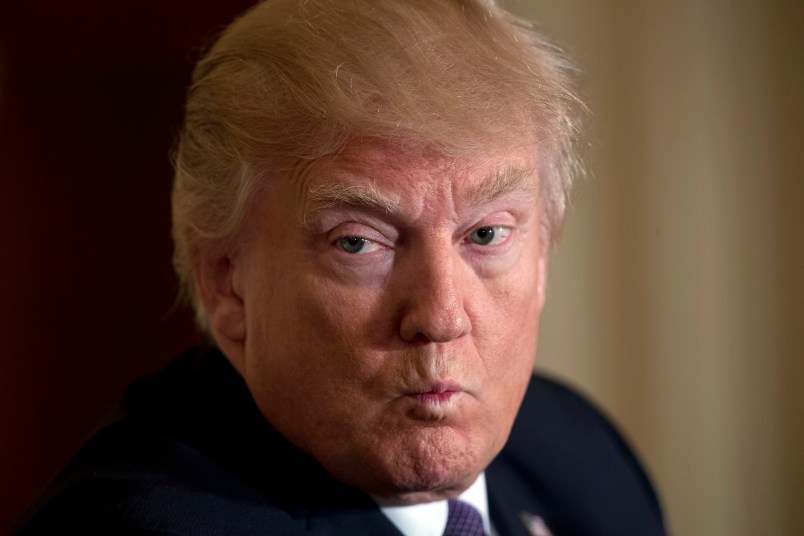The morning after the White House’s abrupt announcement that President Donald Trump had fired James Comey as director of the FBI, it’s still unclear how exactly the administration came to the conclusion that Comey must go.
The narrative out of the White House on the lead-up to Comey’s firing conflicts with press accounts on the decision-making process within the administration.
White House Press Secretary Sean Spicer told reporters Tuesday night that Deputy Attorney General Rod Rosenstein independently launched a review of Comey and denied that the deputy attorney general drew up the letter at the request of the White House.
“It was all him,” Spicer said, according to the Washington Post. “No one from the White House. That was a DOJ decision.”
However, press reports indicate that Trump asked the Justice Department to find reasons to fire Comey.
Anonymous Trump administration aides told the New York Times that White House and DOJ officials “had been charged with building a case to justify Mr. Comey’s firing since at least last week, and that Attorney General Jeff Sessions had been tasked with coming up with reasons to fire him.” CNN reported that Trump “had been considering firing Comey for at least a week,” and that Rosenstein and Attorney General Jeff Sessions “began fine-tuning their rationale for removing Comey” after they learned Trump wanted him gone. According to Politico, the President “had talked about the firing for more than a week, and the letters were written to give him rationale to fire Comey.”
These press accounts paint a picture of a frustrated Trump who spent more than a week finalizing his decision to fire Comey. Trump was also unhappy with the media attention received by Comey. The Wall Street Journal reported:
In the months before his decision to dismiss Mr. Comey as head of the Federal Bureau of Investigation, Mr. Trump grew unhappy that the media spotlight kept shining on the director. He viewed Mr. Comey as eager to step in front of TV cameras and questioned whether his expanding media profile was warping his view of the Russia investigation, the officials said.







Check twitter --------look for ALL CAPS.
We Still Don’t Know Exactly When And Why Trump Decided To Fire Comey…
Uh, sure we do. Comey was not ‘under control’ of the White House and they are nervous / extremely frustrated about the Russia Collusion investigation.
"… and that Rosenstein and Attorney General Jeff Sessions “began fine-tuning their rationale for removing Comey”
I might have misunderstood, but it seems to me that Ari Melber was insinuating that their blaming the firing on the handling of Clinton’s emails was a bit of strategy in that they needed a reason removed from the Russia investigation.
May 2nd: Trump and Putin have third phone conversation in three months.
Is this a joke? Of course we know why Trump fired Comey. He is investigating Trump and the racist orange protofascist disaster is pissed. Did they really expect anyone to believe the transparently absurd claim that it was due to Comey mishandling the Clinton investigation? These guys were absolutely giddy about Comey’s October surprise letter to Chaffetz. If they offer up a sad little fig leaf as patently ridiculous as that Comey was mean to Clinton, it’s absolutely clear Trump is trying to quash the Russia investigation. Let’s stop tap dancing around the obvious.